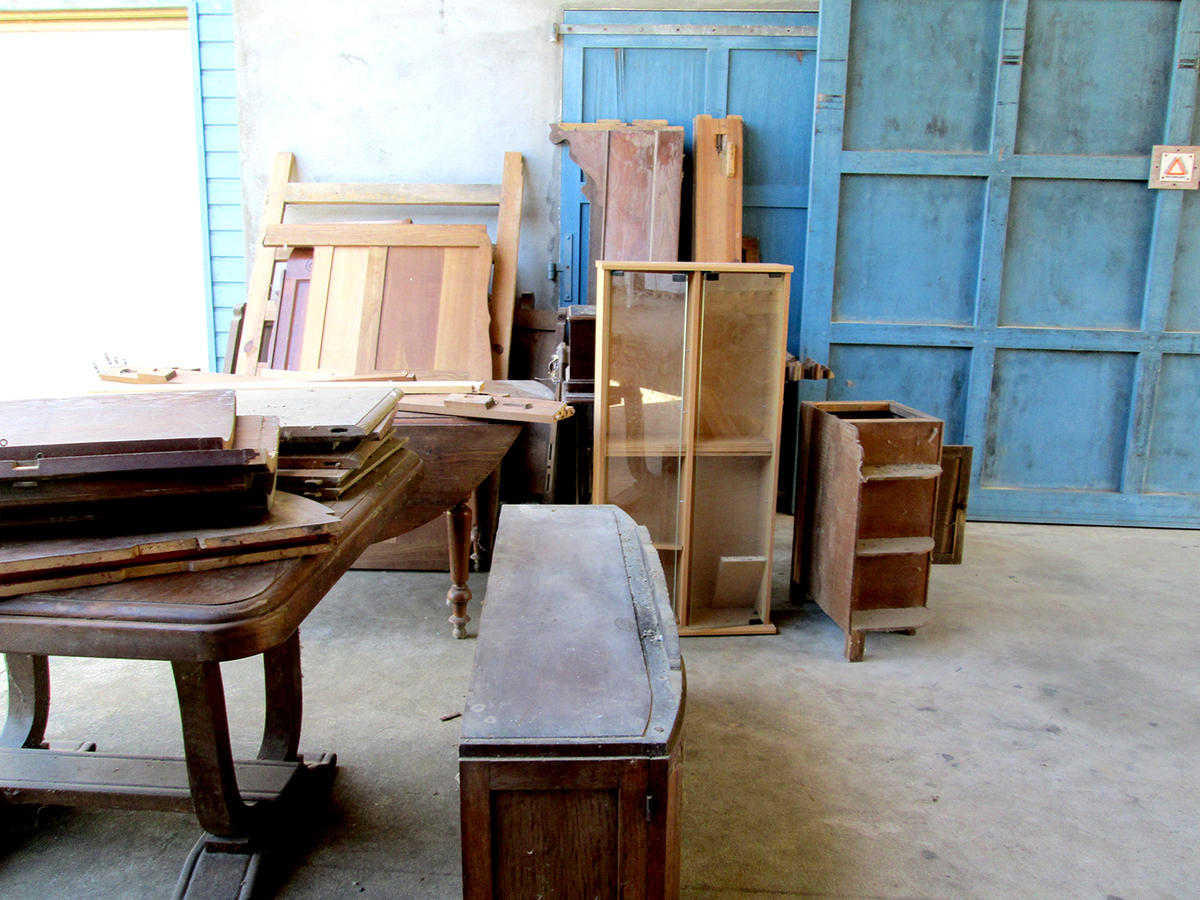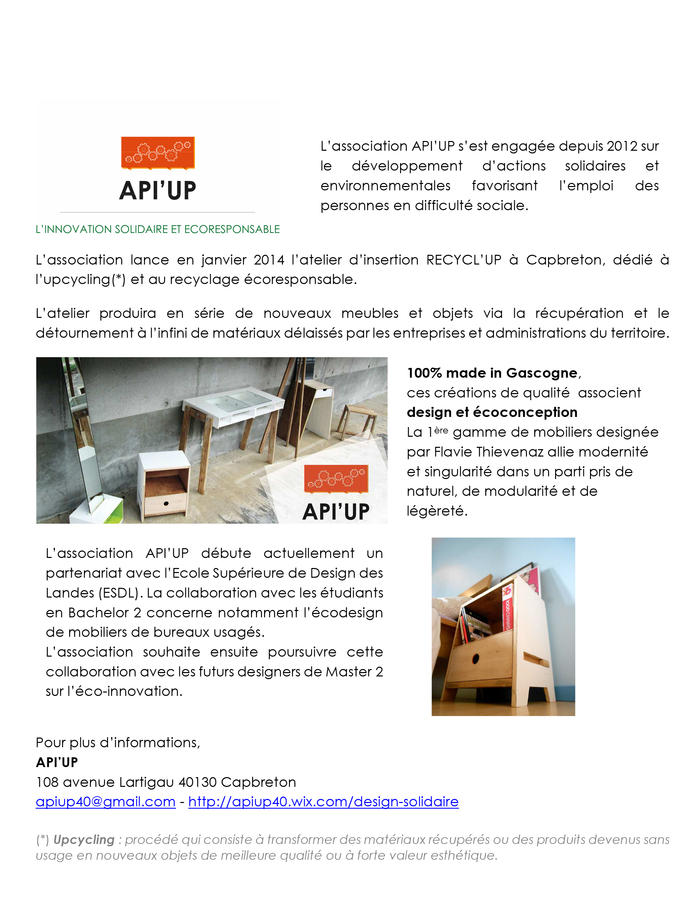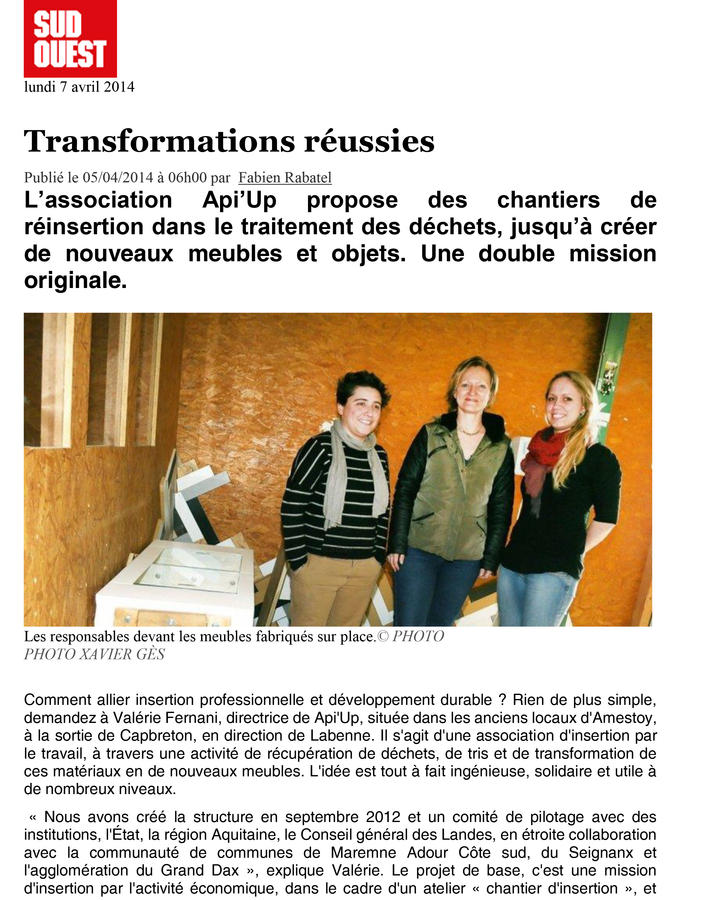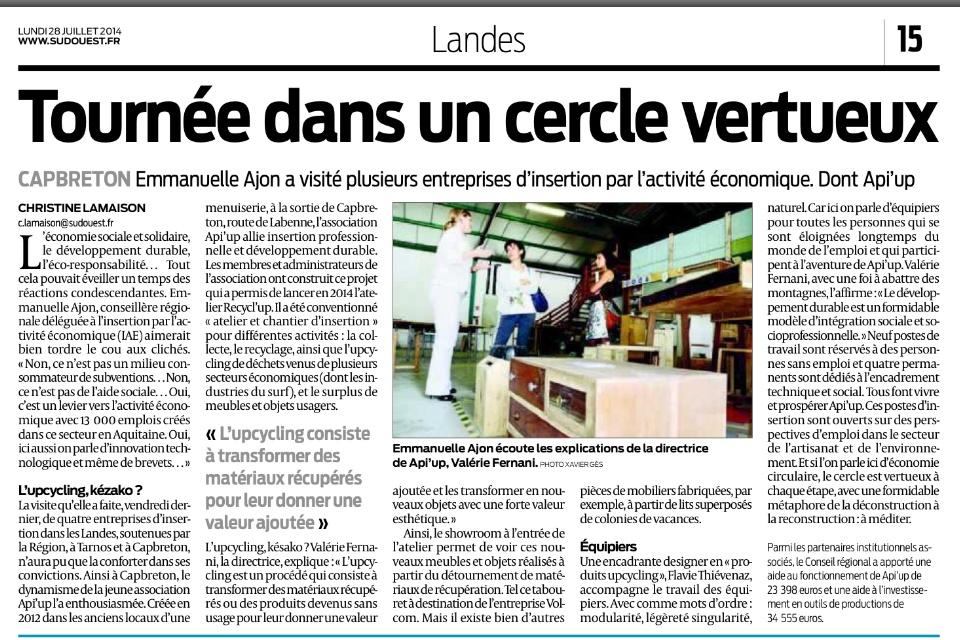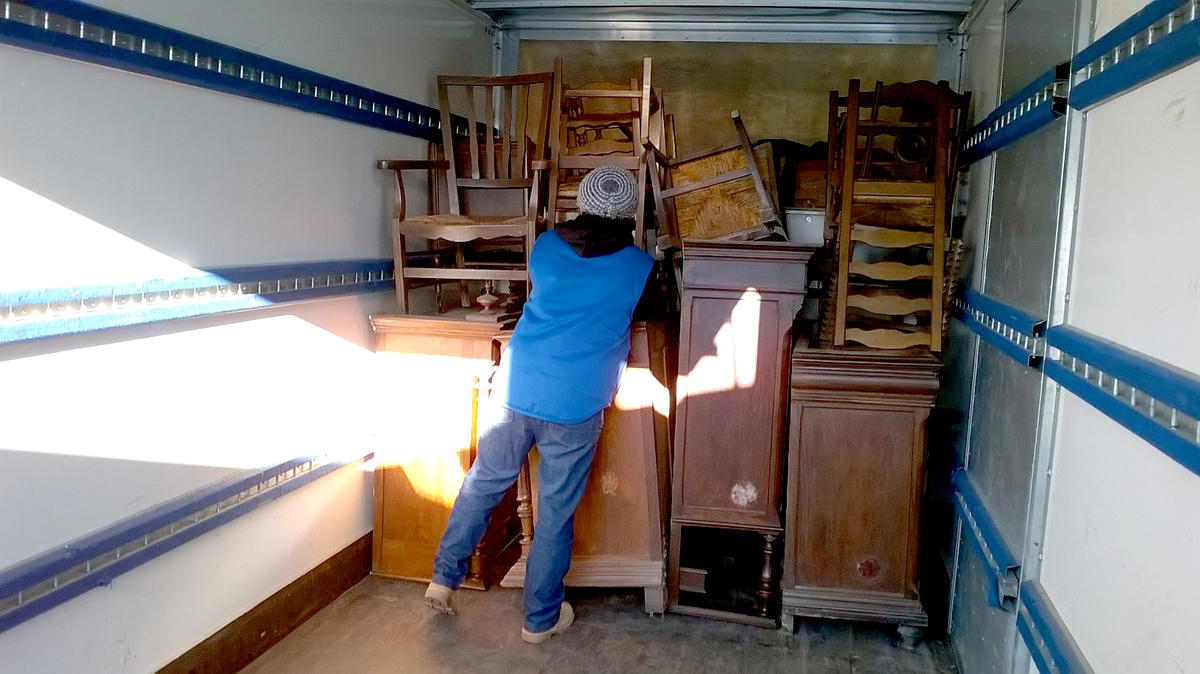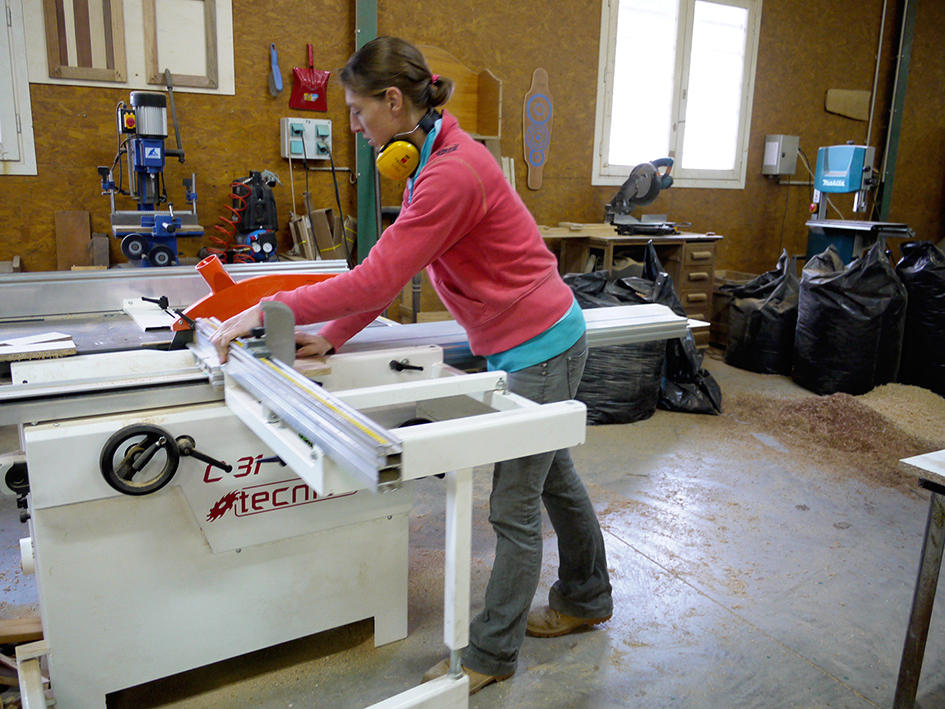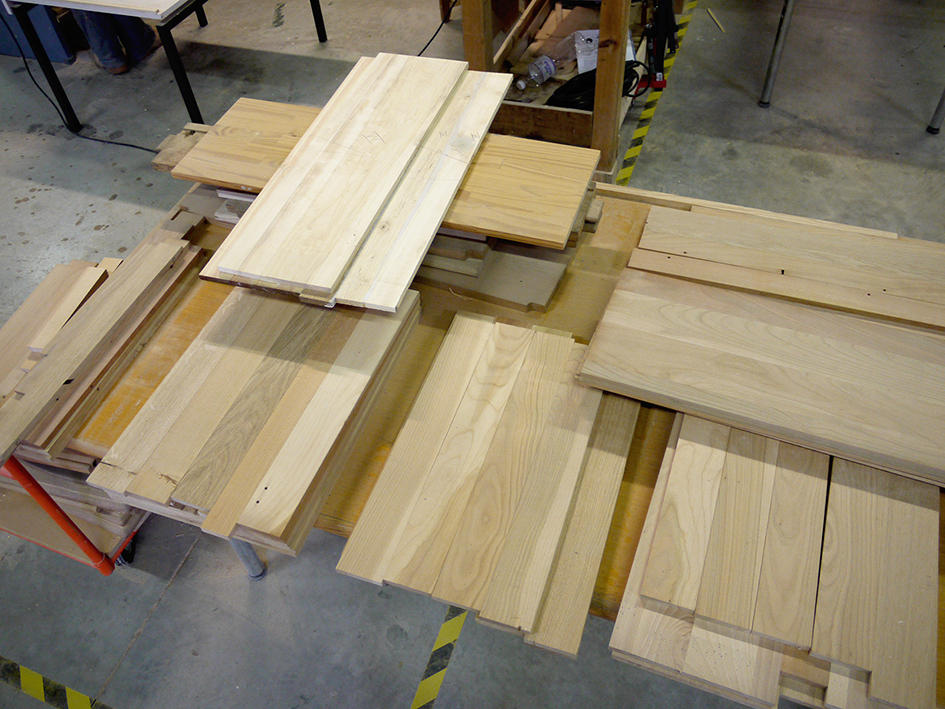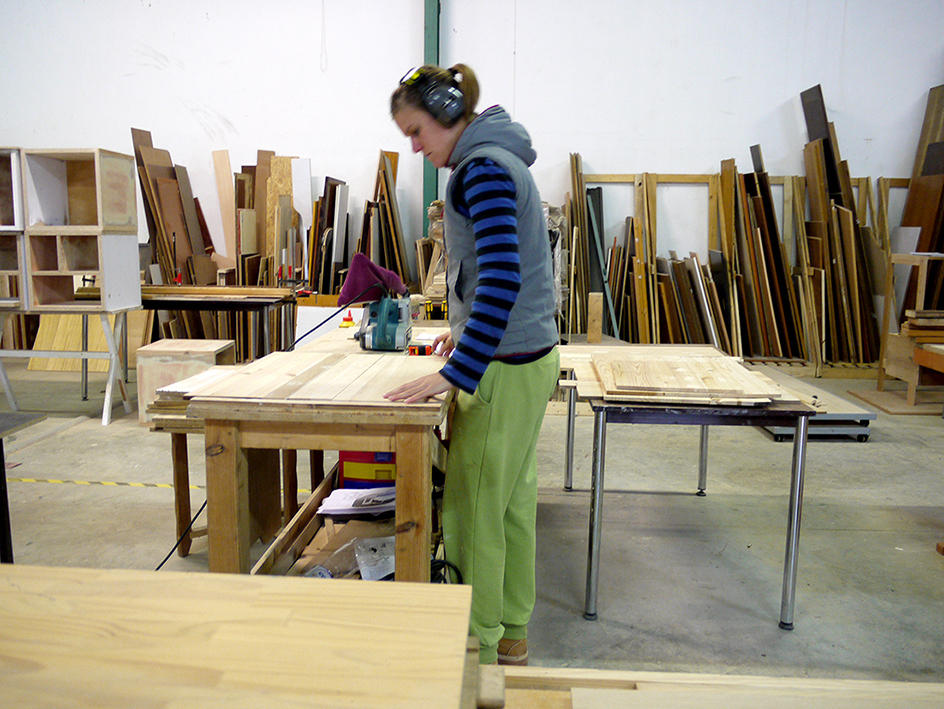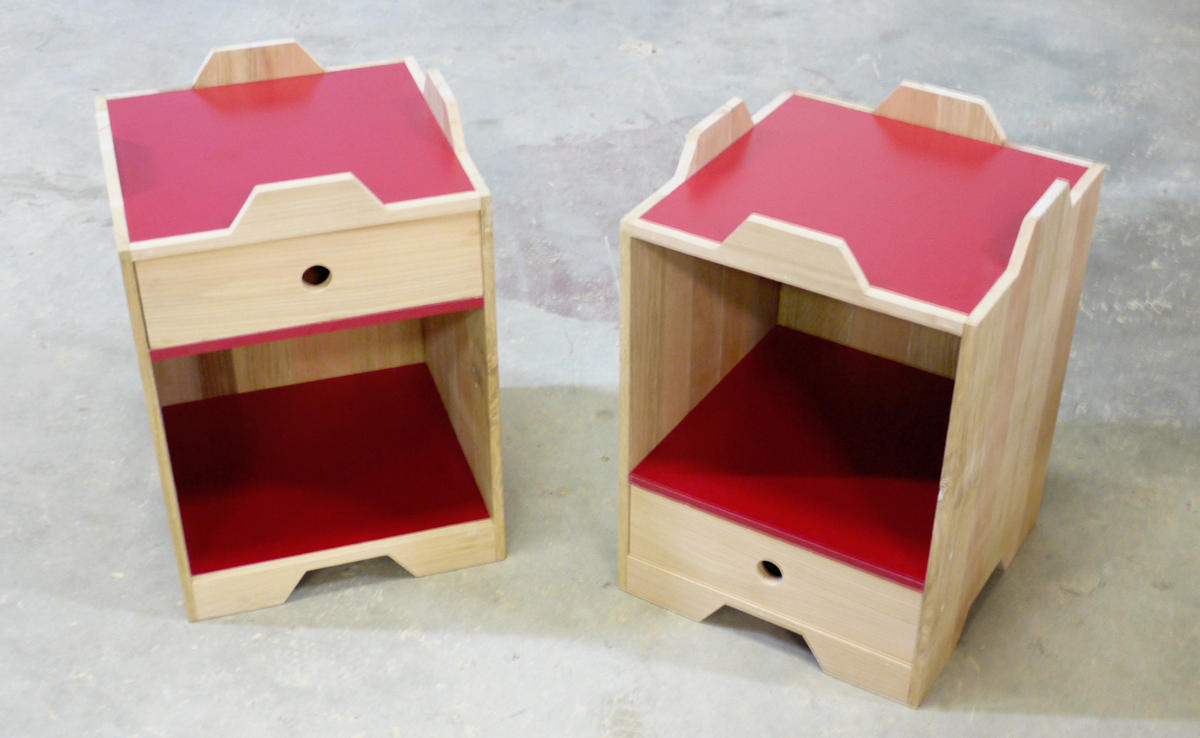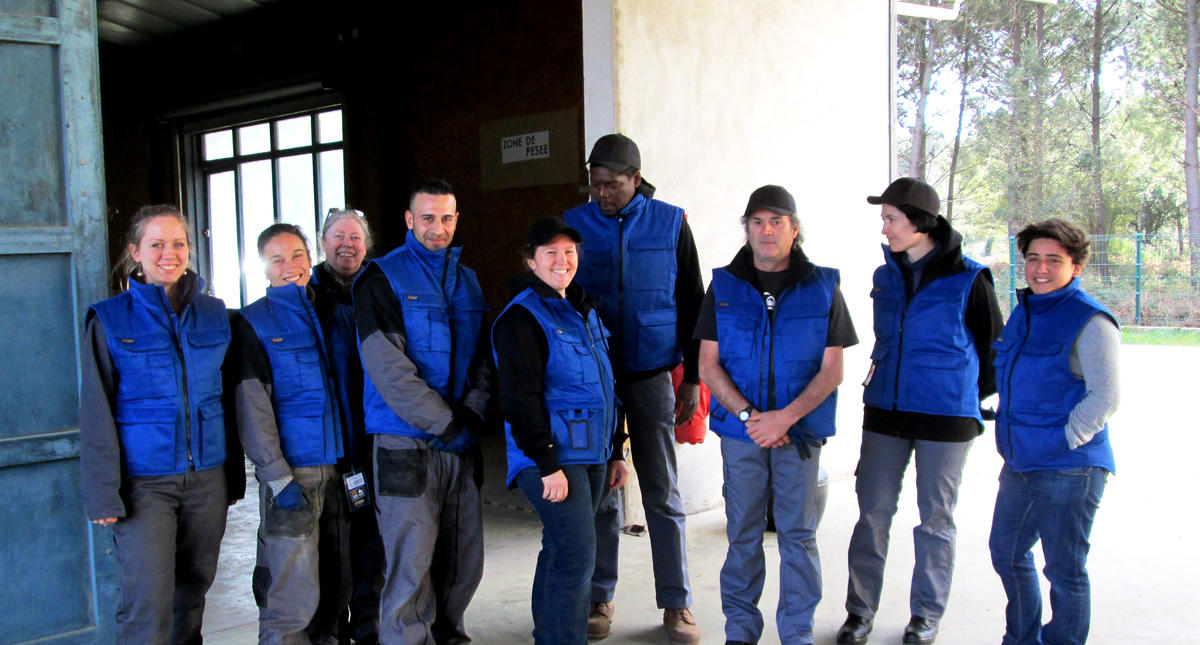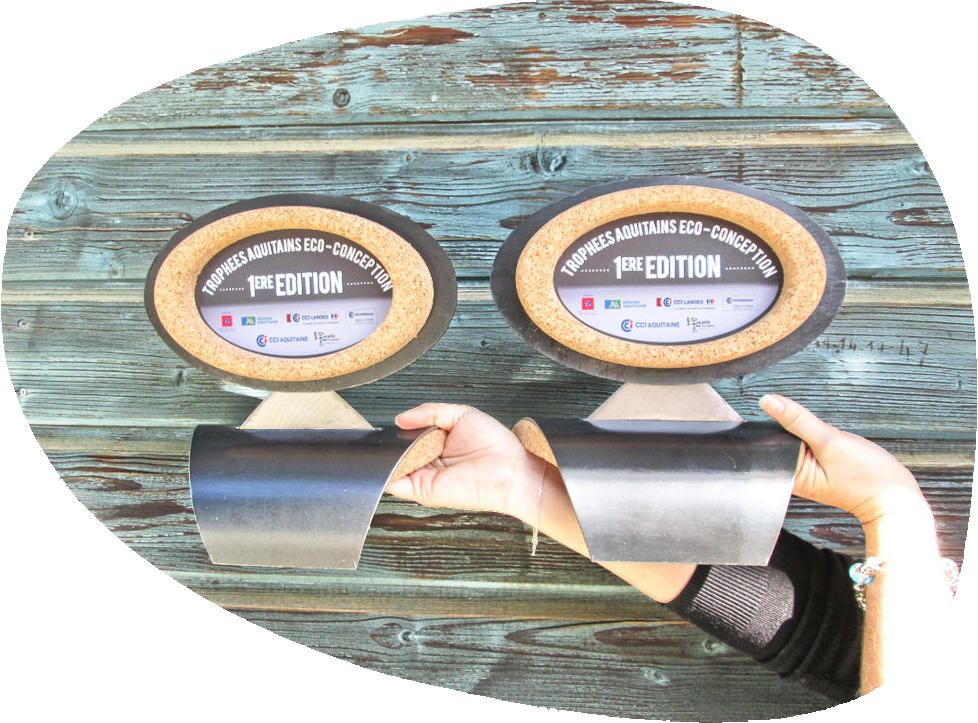“FROM WASTE TO GOOD TASTE”
Project details
- Main leader : API'UP
- Type of initiative : Individual initiative (company, etc.)
- Périmètre : Sud-Aquitaine pour la collecte (jusqu’à Castets, Mont-de-Marsan, Pau et Hendaye). Nationale pour la commercialisation des objets issus de la démarche d’upcycling.
- Localisation : 108 avenue Jean Lartigau 40130 CAPBRETON
- Date de début : janvier 2014
Economy circular topics
- Extending useful service life
- Responsible consumption
- Industrial and regional ecology
- Recycling
- Eco-design
- Sustainable procurement
- Functional service economy
A workshop named “Du Déchet au Design” (roughly translatable as “From waste to good taste”) set up in January 2014 by the upcycling association API’UP, mass-produces new “designer” furniture from waste and abandoned materials collected from local businesses and other economic stakeholders, thereby saving them from landfill or incineration.
The workshop combines environmentally sound recycling and ecodesign into an industrial process to transform used and end-of-life materials into value-added new items in a design approach known as upcycling.
The association contributes to the social economy and more than two-thirds of its workforce is employed via work integration programmes.
Qualitative benefits
- Deploy a business model supported and kept in balance by two interdependent pillars:
- A collection service for waste not currently processed effectively by conventional waste collection operators;
- Environmentally responsible recycling or the creation and sale of designer objects (upcycling).
- Precisely address the requirements in terms of processing diffuse and low-volume flows.
- Set material collection prices in a win-win approach with the customer: the collection price is shared, the annual budget is set and as a design office we are bound by our appraisal of the waste’s value.
- Release a package of marketing tools to promote the approach adopted by collection service customers.
Stages of the initiative
2012: - The project was launched out of a desire to build a business based on technical and technological innovation that contributes to the circular economy. - We approached local authorities in the southern Aquitaine region in order to accurately identify local waste flow collection and processing needs. - We discovered upcycling, which consists in recycling materials by creating value-added items. Our team of eight designers and social integration and sustainable development professionals began the groundwork for taking the project to a semi-industrial scale.
Sept. 2012 – Dec. 2012: in-house cost-benefit analysis. The project received consultant support from Alter-Conseils for six months.
January – June 2013: feasibility study.
October 2013: The workshop was officially approved by the CDIAE work integration organisation.
January 2014: Operational launch of the “From Waste to Good Taste” workshop.
Obstacles
- During the first year of development, work was occasionally hampered by the novel business model, designed to strike a balance between the two pillars (waste collection and processing/upcycling). It was necessary to explain and promote this all-round model to our partners in order to avoid becoming trapped in a sector-specific vision of the business.
- Funding policy for this type of organisation changed during the first year, which caused delays and made the business vulnerable.
Accelerators
- Support from local authorities, without which the project would never have been launched.
- Partnership with the green recycling organisation Valdélia.
- Partnership with CAMIF (an online retailer that sells products from the social economy and sheltered sector), which contacted Api’Up to develop a range of furniture for sale via its website.
- The holistic nature of our model, which forces us to keep our feet firmly on the ground in order to develop both pillars simultaneously.
- Technical and technological innovation as a founding principle of the Api’Up association.
Areas of activity
- Crafts
- Industry
- Services
- Recycling
Resources
- Materials
- Metals
- Waste
- Wood
- Material efficiency
- Use
- Paper
- Cardboard
- Plastic
- Textiles
Technical resources
- 950 m² of production space and offices
- Vehicles: 2 trucks and 1 van.
- Selective waste collection and management facilities.
- Material processing equipment (for wood, metal and textiles).
Human resources
Permanent staff: 6
Employees on work integration programmes: 13
Financers
- Fonds européens
- Etat
- Région Aquitaine Limousin Poitou-Charentes
- Département des Landes
- Communauté de Communes Maremne Adour Côte Sud
- Aquitaine Active
- Banques
